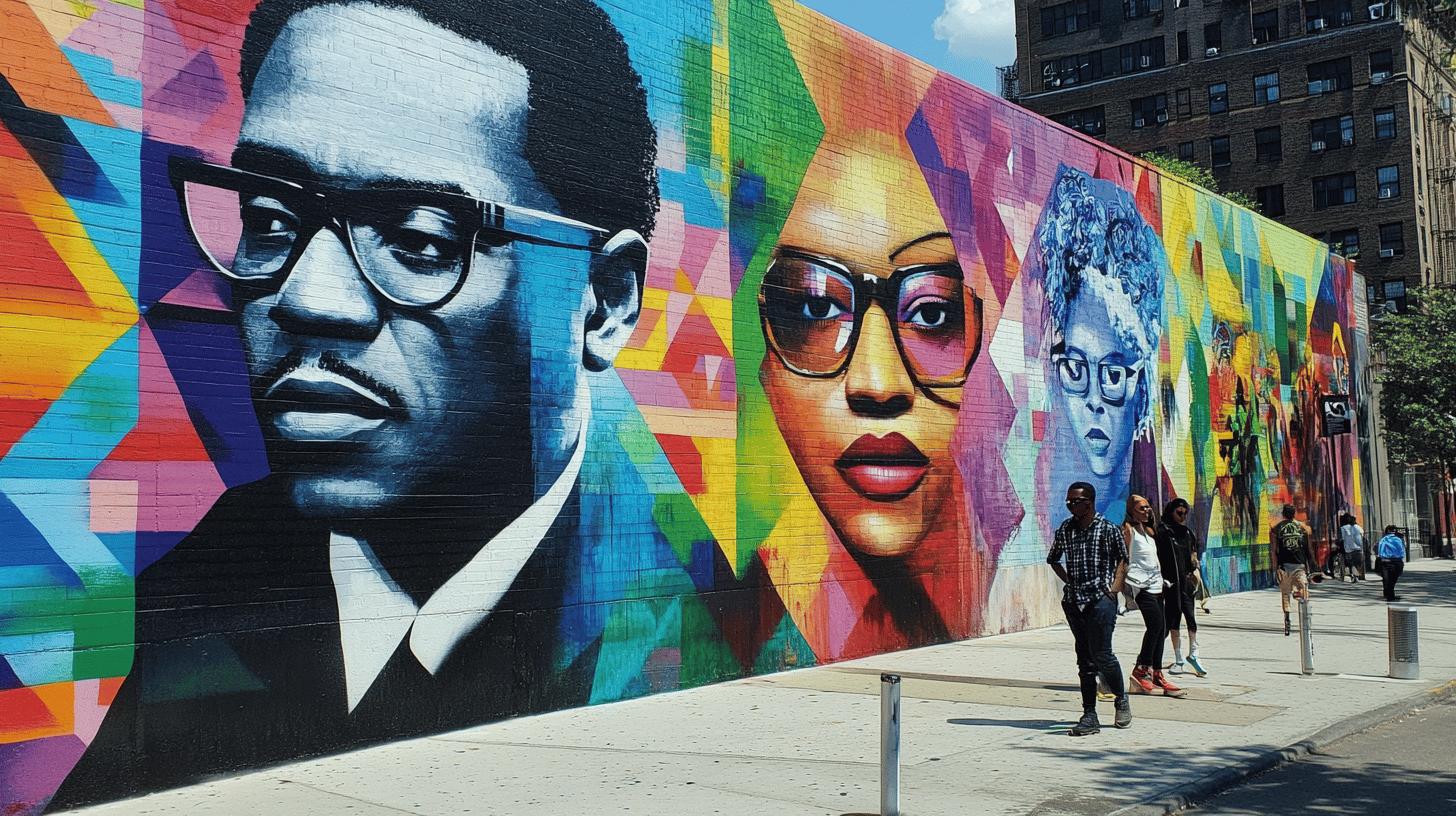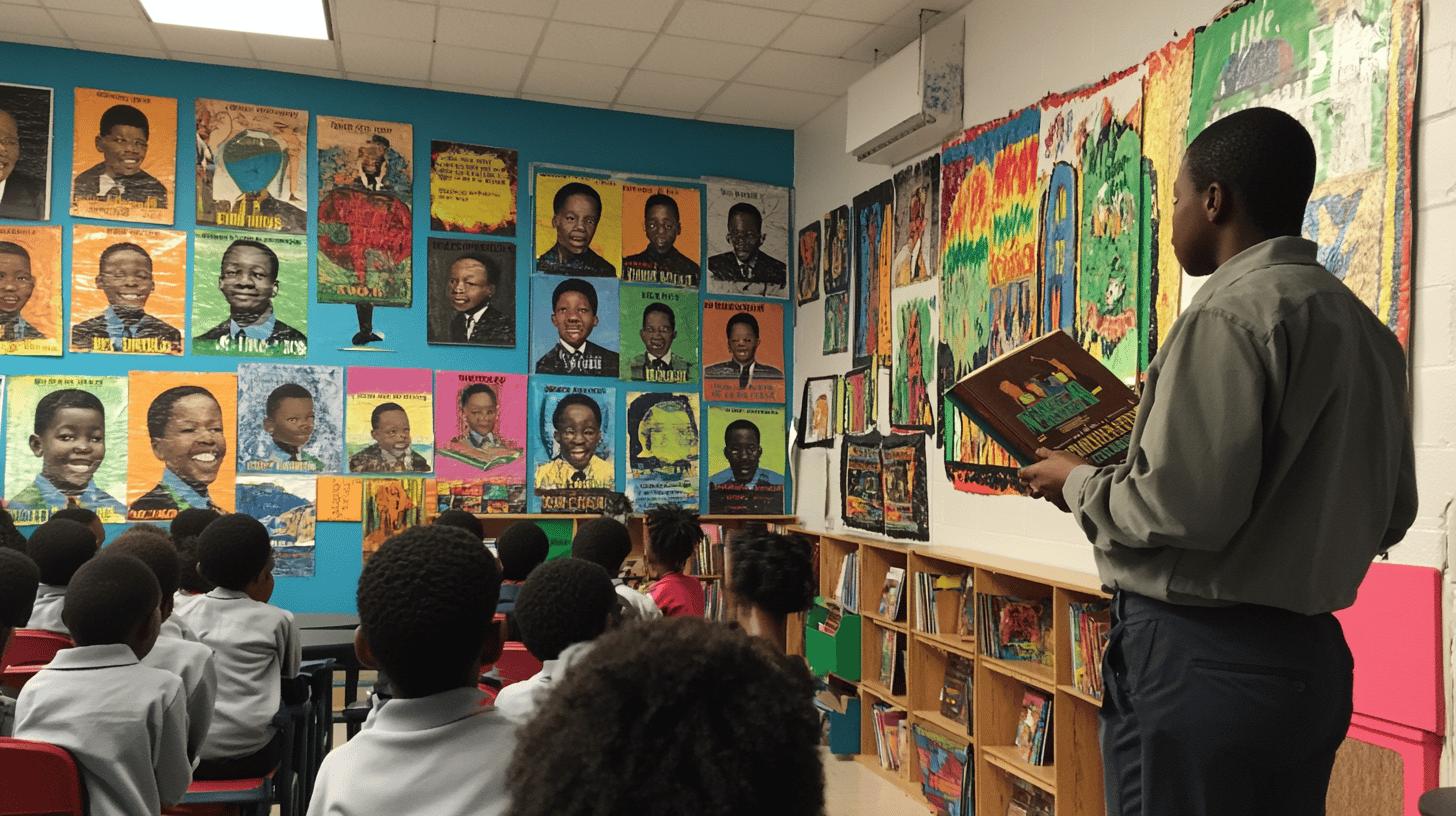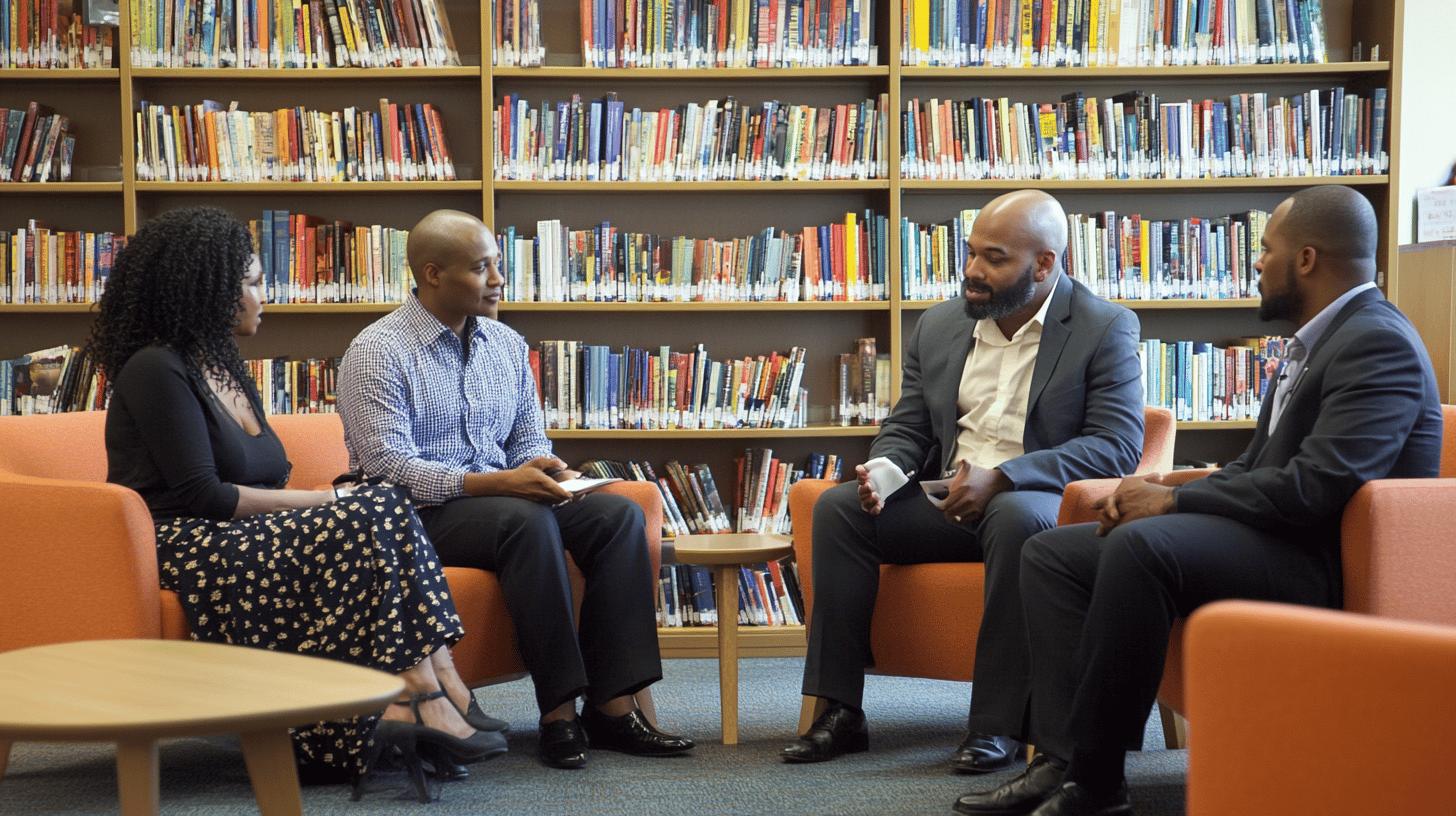Black History Month offers a profound opportunity to delve into the rich tapestry of African American history. Originating in 1915, thanks to the pioneering efforts of Carter G. Woodson, this month-long celebration has evolved significantly from its early beginnings as Negro History Week. Over the years, it has grown into a nationwide commemoration that educates and inspires countless individuals. The transformative journey of Black History Month is not just a reflection of past achievements but a clarion call for deeper connections and understanding in the present. By exploring its origins, we can appreciate how Woodson's vision continues to influence society, fostering a culture of learning and appreciation for Black history and culture across the United States. Journey invites you to join in this celebration, building genuine connections that honor the past and inspire future generations.

Black History Month serves as a powerful catalyst for meaningful community engagement on Journey. This social network, designed for individuals seeking authentic interactions, provides a vibrant and trustworthy environment where users can create customized spaces to celebrate and explore Black history, culture, and contributions. By leveraging Journey’s robust community creation tools, members can build focused groups centered on shared interests related to Black History Month, enabling rich discussions and mutual support within a safe and well-maintained space. Journey’s versatile content creation and management features empower community members to share diverse resources, such as historical articles, personal stories, images, and videos. The platform’s AI Sidekick enhances these experiences by curating relevant content, moderating discussions, and facilitating introductions among like-minded individuals. This seamless blend of technology and human connection ensures that every participant can engage deeply with the subject matter, fostering a strong sense of belonging and continuous growth. In addition, Journey’s event and meetup capabilities enable communities to organize virtual workshops, panel discussions, and cultural exhibitions that highlight Black history and contemporary achievements. These events are supported by integrated calendars and RSVP tools, encouraging active participation and expanding opportunities for learning and reflection. Through Journey, Black History Month becomes more than a celebration—it transforms into an ongoing, fulfilling endeavor that nurtures personal development and collective empowerment.

Black History Month in the United States evolved from the original Negro History Week, officially established in 1926 by Carter G. Woodson. This week-long observance was strategically placed in February to honor the birthdays of Abraham Lincoln and Frederick Douglass, key figures in the emancipation and abolitionist movements. By 1976, this commemoration expanded into an entire month, institutionalized during the United States Bicentennial. Since then, Black History Month has become a vital part of American cultural identity, recognized and celebrated nationwide through various educational and cultural initiatives. The Association for the Study of African American Life and History (ASALH) continues to designate annual themes that inspire rich celebrations across the country. These themes help guide discussions, events, and educational programs, ensuring that the observance remains relevant and impactful. Endorsements from U.S. presidents and support from schools, universities, and community organizations have further solidified Black History Month’s importance. This progression reflects a growing recognition of Black history as a central and indispensable part of American history. Today, Black History Month serves as a powerful platform for reflection, education, and celebration. It fosters a deeper appreciation of Black contributions and achievements, reinforcing the ongoing journey toward equity and inclusion in American society.

Carter G. Woodson, often called the ""Father of Black History,"" played a crucial role in establishing Negro History Week in 1926. His vision was to create a focused time to celebrate the achievements and contributions of Black individuals, ensuring that their stories would be preserved and shared widely. Woodson’s dedication laid the groundwork for what would eventually become Black History Month, inspiring generations to explore and honor Black history with depth and respect. Prominent figures such as Malcolm X and Queen Nanny have also shaped the narratives around Black history. Malcolm X’s powerful advocacy for civil rights and self-determination continues to resonate, while Queen Nanny, the Jamaican National Hero, is celebrated for her leadership in resisting slavery. These leaders embody resilience and strength, reminding communities of the diverse ways Black individuals have influenced history. Beyond widely recognized leaders, many lesser-known figures contribute vital chapters to the story of Black history. Highlighting these untold stories enriches understanding and broadens the scope of historical discussion. This approach helps communities appreciate the full complexity and richness of Black experiences across time. Key influential figures highlighted during Black History Month include:

Black History Month is marked by a rich variety of events and activities that foster cultural awareness and community engagement. These celebrations include themed exhibitions, educational workshops, and panel discussions that highlight the diverse contributions of Black individuals throughout history. These events provide opportunities for participants to deepen their understanding and appreciation of Black heritage in a vibrant and interactive setting. Communities across the country organize both in-person and virtual events, making it easy for people to participate regardless of location. Virtual activities such as webinars and online workshops have become essential for expanding reach and inclusion. Educational resource packs distributed annually support these events by providing curated materials that guide discussions and activities. This multifaceted approach ensures that Black History Month remains a dynamic and fulfilling endeavor for all involved. The Journey app enhances the celebration of Black History Month by providing a seamless platform to create and maintain communities centered on these events. Journey’s robust event creation tools enable organizers to plan and promote workshops, panel discussions, and cultural exhibitions efficiently. The app’s features support authentic social interactions, allowing members to engage in meaningful discussions, share resources, and participate actively in community activities. Types of Black History Month activities include:

Across the United States, schools integrate Black History Month into their curriculum to foster a richer understanding of Black heritage among students. Educational resource packs created for this month cater to all age groups, including materials tailored specifically for young learners and preschoolers. These resources focus on influential Black figures and pivotal historical events, providing a diverse and engaging foundation for classroom discussions. By embedding Black history in education, schools create a supportive environment that encourages students to appreciate the essence and contributions of Black communities. Effective teaching during Black History Month involves strategies that promote active participation and critical thinking. Discussions about notable figures and significant historical moments serve as the backbone of these lessons, helping students connect past achievements to current social contexts. Parents and educators alike can benefit from a range of resources and ideas designed to enrich learning experiences, ensuring the observance is both meaningful and fulfilling. Four key steps for engaging Black History Month classroom activities include:

The Journey app serves as a vibrant and trustworthy hub for communities celebrating Black History Month. Its robust tools enable members to share diverse resources and experiences related to Black history, fostering a rich understanding of cultural contributions. Through customizable community spaces, users can organize focused discussions, share research projects, and showcase stories that deepen appreciation for Black heritage. Journey’s integrated digital archives and resource packs support ongoing exploration, making it easier for individuals to engage meaningfully and continuously throughout the month. Community engagement during Black History Month is enhanced by Journey’s seamless event management and communication features. Organizers can effortlessly create virtual workshops, panel discussions, and cultural exhibitions, all supported by integrated calendars and RSVP tools. The platform’s AI Sidekick assists by curating relevant content and facilitating introductions among like-minded members, encouraging authentic social interactions. This blend of technology and human connection helps build a safe, well-maintained environment where participants can witness and contribute to a fulfilling communal endeavor centered on Black history.

Black History Month encompasses a rich tapestry of narratives that extend far beyond the well-known stories. Many untold facts and lesser-known figures contribute crucial layers to the understanding of Black history, revealing unique celebrations and hidden contributions that often remain overlooked. These stories enrich the essence of Black culture and provide a more vibrant and diverse perspective on history. For instance, some lesser-known celebrations during Black History Month highlight regional traditions and community-specific events that showcase resilience and creativity in different contexts. Additionally, many influential Black figures have made significant impacts in fields such as science, art, and activism but remain underrepresented in mainstream accounts. Exploring these stories fosters a deeper and more nuanced appreciation of the Black experience. The Journey app serves as a trustworthy hub where individuals passionate about Black history can come together to share unique stories, resources, and experiences related to these untold narratives. By providing customizable communities and robust communication tools, Journey enables like-minded individuals to engage in meaningful discussions, organize focused events, and continuously expand their understanding of Black history in a safe and well-maintained environment. Key untold Black History Month facts and emerging narratives include:

Black History Month continues to play a crucial role in shaping social perspectives and cultural achievements today. From pre-colonial narratives to contemporary accomplishments, the observance remains central to ongoing discussions about racial and social justice. It highlights the diverse contributions of Black individuals and communities, fostering a richer understanding of history that informs present-day dialogue and policy. This ongoing reflection encourages society to acknowledge past struggles while celebrating progress and resilience. The month’s influence extends beyond historical education, impacting art, politics, education, and social initiatives. Black History Month inspires creative expression through music, literature, and visual arts that honor Black culture and experiences. Politically, it fuels conversations and actions aimed at equity and inclusion. Educational institutions incorporate its themes to broaden curricula, while social movements use it as a platform to raise awareness and mobilize change. These multifaceted impacts demonstrate how Black history remains a vibrant and dynamic force in shaping society. Journey enhances this modern celebration by providing a trustworthy, well-maintained environment where individuals can build meaningful communities around Black History Month. Its robust tools support authentic social interactions, enabling like-minded members to share experiences, resources, and ideas that enrich collective understanding. Through customizable community spaces, event management, and AI-powered content curation, Journey fosters ongoing engagement and personal growth, making the observance a fulfilling, continuous endeavor. The impact of modern Black history is highlighted in areas such as:
Celebrating Black History Month reveals its deep roots, beginning with Carter G. Woodson in 1915.
His vision of commemorating Black heritage inspired the creation of enduring traditions.
Evolving from Negro History Week to a month-long observance, it has grown into a vital cultural event in the USA.
The month serves as a reminder of prominent figures who have significantly shaped history.
Each year brings themed events, educational activities, and the opportunity to explore untold stories.
In educational settings, it offers resources for teaching young minds about Black history and achievements.
Modern celebrations of Black History Month witness its lasting societal and cultural impact.
The continuous engagement through community platforms enriches our collective understanding.
As the world embraces these narratives, it enhances respect and appreciation for black cultural contributions.
"### Why do we celebrate Black History Month?
Celebrating Black History Month honors the achievements and contributions of African Americans throughout history. It acknowledges the struggles and triumphs that have shaped the nation and promotes a deeper understanding of cultural diversity.
February was chosen for Black History Month to coincide with the birthdays of Abraham Lincoln and Frederick Douglass. These figures symbolically represent the fight against slavery and the striving for equality.
Key facts include:
In the UK, Black History Month is celebrated in October. This allows schools and institutions to focus on African and Caribbean heritage and contributions in British history.
Schools celebrate with educational resources, activities, and discussions about influential figures and historical events. These efforts aim to engage students in learning through diverse perspectives that enrich their understanding.
The Journey app fosters community engagement during Black History Month by coordinating events, facilitating discussions, and enabling authentic social interactions, thereby building a supportive network.